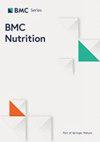Exploring dietary changes and supplement use among cancer patients in Norway: prevalence, motivations, disclosure, information, and perceived risks and benefits: a cross sectional study
IF 1.9
Q3 NUTRITION & DIETETICS
引用次数: 0
Abstract
Cancer is the leading cause of death in Norway, with prostate, breast, lung, and colon cancers being the most prevalent types. Adopting a healthy and varied diet can help reduce cancer risk and recurrence. However, access to dietary counselling remains limited for cancer patients in Norway. This study aimed to investigate the prevalence of dietary supplement use and dietary changes made by cancer patients and survivors. Additionally, it sought to explore the reason(s) for such practices, communication with healthcare providers, sources of information, and reported benefits and potential harms resulting from these changes and supplement use. Conducted in collaboration with the Norwegian Cancer Society (NCS), this online cross-sectional study targeted members of their user panel who had either current or previous cancer (n = 706). The study took place in September/October 2021, utilizing a modified cancer-specific version of the International Questionnaire to Measure Use of Complementary and Alternative Medicine (I-CAM-Q). Out of 468 participants (315 women and 153 men), 67.2% consented to participate. Between-group analyses were conducted using Pearson chi-square tests and Fisher exact tests for categorical variables, while independent sample t-tests were applied for continuous variables. The majority of the participants (97%) reported making changes to their diet (78%) and/or incorporating dietary supplements (73%) in response to their cancer diagnosis. The primary goal of these changes was to strengthen their body and immune system. Almost half of the participants (49%) reported that they found these changes beneficial and discussed them openly with their healthcare providers, with family physicians being the most common point of discussion (25%). Adverse effects were reported by only a few participants, mostly mild. Information about dietary changes and supplements was primarily sourced from the internet or healthcare providers. This study highlights that most individuals affected by cancer attribute to dietary adjustment. It also emphasizes the importance of addressing adherence to dietary recommendations and using reliable sources of information. Additionally, the study highlights the potential, yet currently underutilized, role of healthcare professionals in initiating dialogues about dietary interventions to address any unmet needs of patients. Such proactive engagement may contribute to the promotion of reliable sources of information and the prevention of non-evidence-based and potentially harmful diets or supplement adoption.挪威癌症患者饮食变化和补充剂使用情况探索:流行率、动机、披露、信息以及感知的风险和益处:一项横断面研究
癌症是挪威人的主要死因,其中前列腺癌、乳腺癌、肺癌和结肠癌最为常见。采用健康和多样化的饮食有助于降低癌症风险和复发率。然而,在挪威,癌症患者获得饮食咨询的机会仍然有限。本研究旨在调查癌症患者和幸存者使用膳食补充剂和改变饮食习惯的情况。此外,该研究还试图探究采取这些做法的原因、与医疗保健提供者的沟通、信息来源以及这些改变和补充剂的使用所带来的益处和潜在危害。这项在线横断面研究是与挪威癌症协会(NCS)合作进行的,研究对象是其用户小组中目前或曾经患过癌症的成员(n = 706)。该研究于 2021 年 9 月/10 月进行,采用的是经修改的癌症专用版《测量补充和替代医学使用情况的国际问卷》(I-CAM-Q)。在 468 名参与者(315 名女性和 153 名男性)中,67.2% 的人同意参与。对分类变量采用皮尔逊卡方检验和费雪精确检验进行组间分析,对连续变量采用独立样本 t 检验。大多数参与者(97%)表示,他们在确诊癌症后改变了饮食习惯(78%)和/或添加了膳食补充剂(73%)。这些改变的主要目的是增强体质和免疫系统。近一半的参与者(49%)表示,他们认为这些改变是有益的,并与他们的医疗保健提供者进行了公开讨论,其中家庭医生是最常见的讨论点(25%)。只有少数参与者报告了不良反应,大多数都很轻微。有关饮食改变和补充剂的信息主要来自互联网或医疗服务提供者。这项研究强调,大多数受癌症影响的人都会进行饮食调整。它还强调了遵守饮食建议和使用可靠信息来源的重要性。此外,该研究还强调了医疗保健专业人员在发起有关饮食干预的对话以满足患者任何未满足的需求方面的潜在作用,但这一作用目前尚未得到充分利用。这种积极主动的参与可能有助于推广可靠的信息来源,防止采用无证据且可能有害的饮食或补充剂。
本文章由计算机程序翻译,如有差异,请以英文原文为准。
求助全文
约1分钟内获得全文
求助全文
来源期刊

BMC Nutrition
Medicine-Public Health, Environmental and Occupational Health
CiteScore
2.80
自引率
0.00%
发文量
131
审稿时长
15 weeks
 求助内容:
求助内容: 应助结果提醒方式:
应助结果提醒方式:


